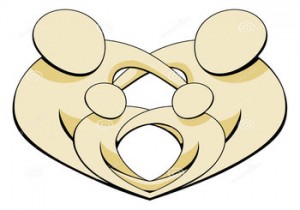If you have tried managing your child’s negative behaviour on your own, but there is still no visible improvement, then it might be time to consider seeking out professional help. Often times, an early intervention makes it easier to address and resolve your child’s behavioural problem.
If your child exhibits any of these warning signs, you should consider sending your child for counselling and therapy:
- Refusal to attend school
- Loss of interest in anything
- Greatly reduced or no appetite
- Packing or giving away personal possessions
- A sudden change to negative behaviour, eg. withdrawn, irritable, angry, isolation
- Writing or leaving notes to parents
- Saying things like “when I’m not around, take care of my pet.”
Our therapists can teach your child the relevant skills necessary to cope or manage the stress and problems in their lives.
There are several types of behavioural disorders, including (1) oppositional defiant disorder (2) conduct disorder. These disorders affect the way a child or youth acts or behaves. Some people think a child or youth with a behavioural disorder is “bad” and may even blame a parent for their child’s behaviour. But these disorders are real problems that affect many children and youth. Fortunately, there are many different treatments and things to try at home.
Oppositional Defiant Disorder
The signs of oppositional defiant disorder include very angry and negative behaviours that (1) last for a long time (2) happen often (3) cause a lot of problems in the child or youth’s life. With this disorder, a child or youth may often be angry and irritable; argue with parents, teachers and other adults; or be mean, hurtful, spiteful or vindictive. You can usually see signs of oppositional defiant disorder before a child is eight years old. It starts slowly and gradually. Parents may notice the signs at home first, but the disorder may start to affect other parts of the child or youth’s life, such as school.
Conduct Disorder
The signs of conduct disorder include behaviours that go against rules or other people’s rights and last for a long time, happen often, and cause a lot of problems in the child or youth’s life. With this disorder, a child or youth may often be aggressive towards other people or animals – bullying, starting fights, hurting others, using a weapon; harm someone’s property on purpose; tell major lies – to get something or avoid responsibilities; steal – break into a house or car, or steal something that’s important to someone; or break serious rules – run away from home or skip school a lot.
Other Child or Adolescent Issues We Address:
Exam stress or anxiety, low confidence or self esteem, social anxiety, phobias and fears.
To find out what how counselling can help your loved ones, please sign up below for a free initial consultation. We will use the free consultation to explain our therapy modalities and techniques, and to explore how best we can help you. We will follow-up with an email to schedule a convenient time to call you. Every effort will be made to respond within the same day.
Alternatively, you may directly reach out to one of our professional therapists at (65) 9-100-0432.
Please keep in mind that this initial consultation is FREE and is in total confidence
